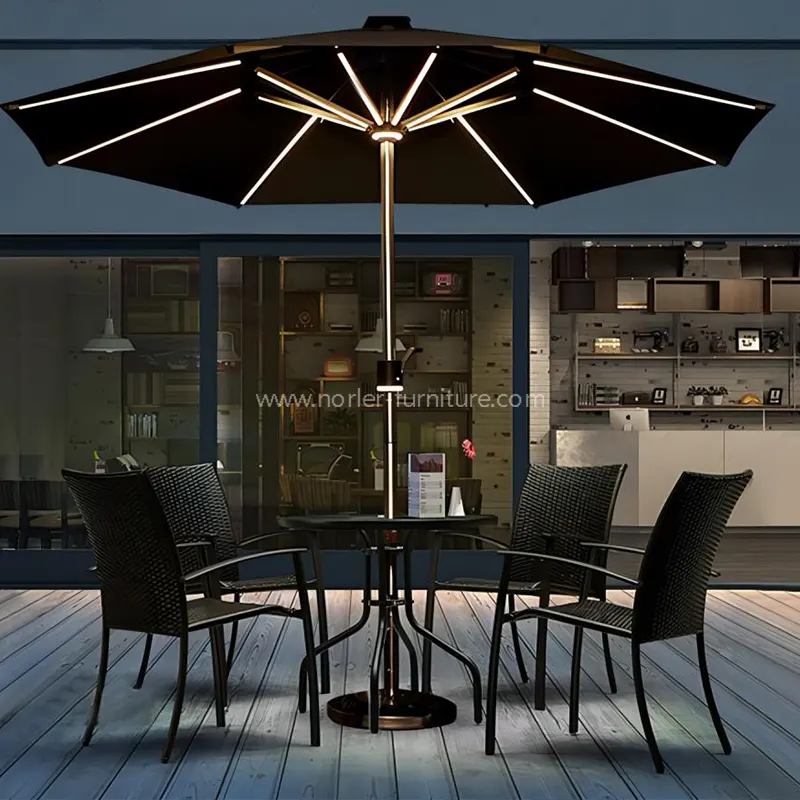How To Choose An Eco Friendly Outdoor Parasol That Lasts
2025-08-27
Choosing a sustainable and durable Outdoor Parasol isn’t just good for the planet—it’s a smart investment for your outdoor space. With over two decades in the industry, I’ve seen too many parasols end up in landfills after just one season. So how do you pick one that’s truly eco-friendly and built to last?
Let’s break it down.
What Materials Should You Look For
The foundation of a planet-friendly Outdoor Parasol lies in its materials. Avoid virgin plastics and synthetic fabrics that shed microfibers. Instead, opt for:
-
FSC-Certified Wood or Recycled Aluminum for the frame
-
Solution-Dyed Polyester or OEKO-TEX® Certified Fabric for the canopy—these reduce water, energy, and dye waste
-
UV-Resistant and Water-Repellent finishes that are free from PFCs
At Norler, we use 100% recycled aluminum for our frames and premium eco-friendly fabric made from recycled PET bottles—without compromising on durability or style.
Is the Manufacturing Process Sustainable
Materials matter, but so does how they’re made. Look for brands that prioritize:
-
Low-carbon production
-
Ethical labor practices
-
Recyclable or biodegradable packaging
Norler partners with factories using solar power and aims for zero-waste packaging across all product lines.
What Certifications Really Matter
Don’t just take marketing claims at face value. Trust certifications like:
-
Global Recycled Standard (GRS)
-
FSC Certification
-
OEKO-TEX® Standard 100
These ensure that the Outdoor Parasol you’re buying meets strict environmental and safety standards.
Norler Eco-Friendly Parasol – Quick Comparison
| Feature | Conventional Parasol | Norler Eco Parasol |
|---|---|---|
| Frame Material | Virgin Aluminum | Recycled Aluminum |
| Canopy Fabric | Standard Polyester | Recycled PET Fabric |
| UV Protection | Coating may degrade | Built-in UV resistance |
| Lifespan | 1-3 seasons | 5+ seasons |
| End-of-Life | Landfill | Fully Recyclable |
Outdoor Parasol FAQ
What is the most sustainable frame material for an Outdoor Parasol
Recycled aluminum or FSC-certified wood are top choices. Aluminum offers rust resistance and longevity, while wood brings natural aesthetics and biodegradability.
How can I tell if a parasol is truly eco-friendly
Look for third-party certifications like GRS or OEKO-TEX®. Also, review the brand’s transparency around material sourcing and manufacturing processes.
Do eco-friendly parasols sacrifice durability
Not at all. High-quality eco-materials like recycled aluminum and solution-dyed fabric often outperform conventional options in UV resistance and tear strength.
Why Choose Norler
When you choose a sustainable Outdoor Parasol from Norler, you’re not just getting a product that lasts—you’re supporting ethical manufacturing and reducing waste. Our parasols are engineered for years of use, come with a 5-year warranty, and are designed for disassembly and recycling.
Ready to make a sustainable choice? Contact us today to explore our eco-friendly parasol collection and transform your outdoor space with confidence.



